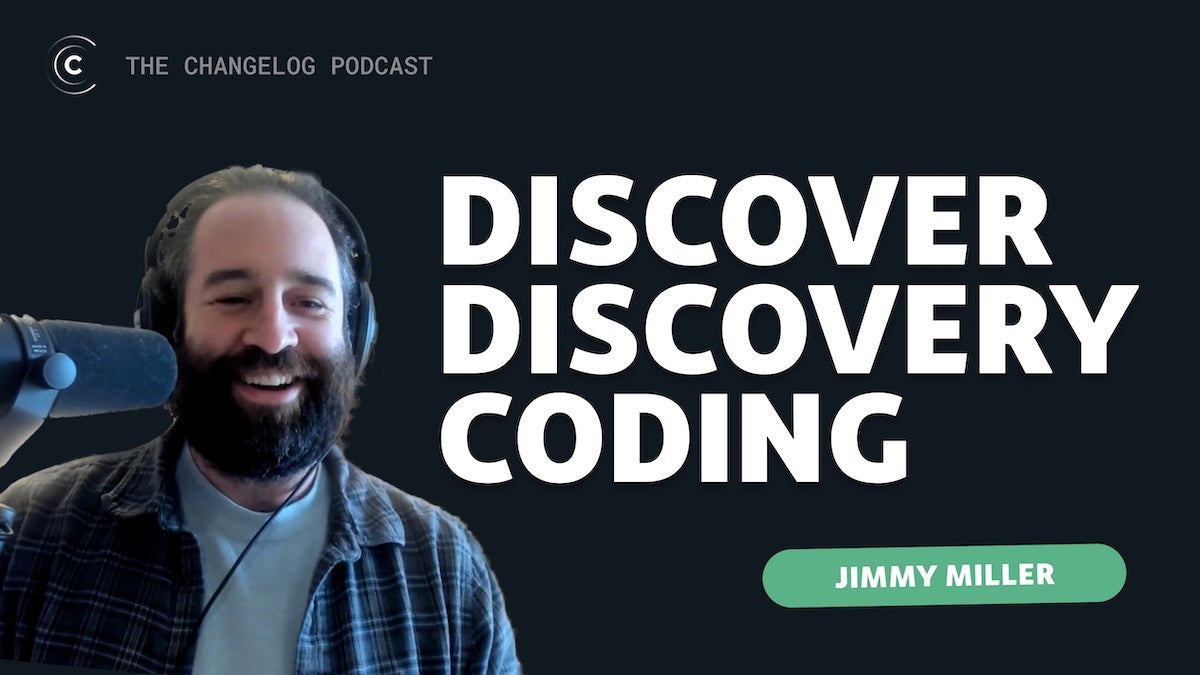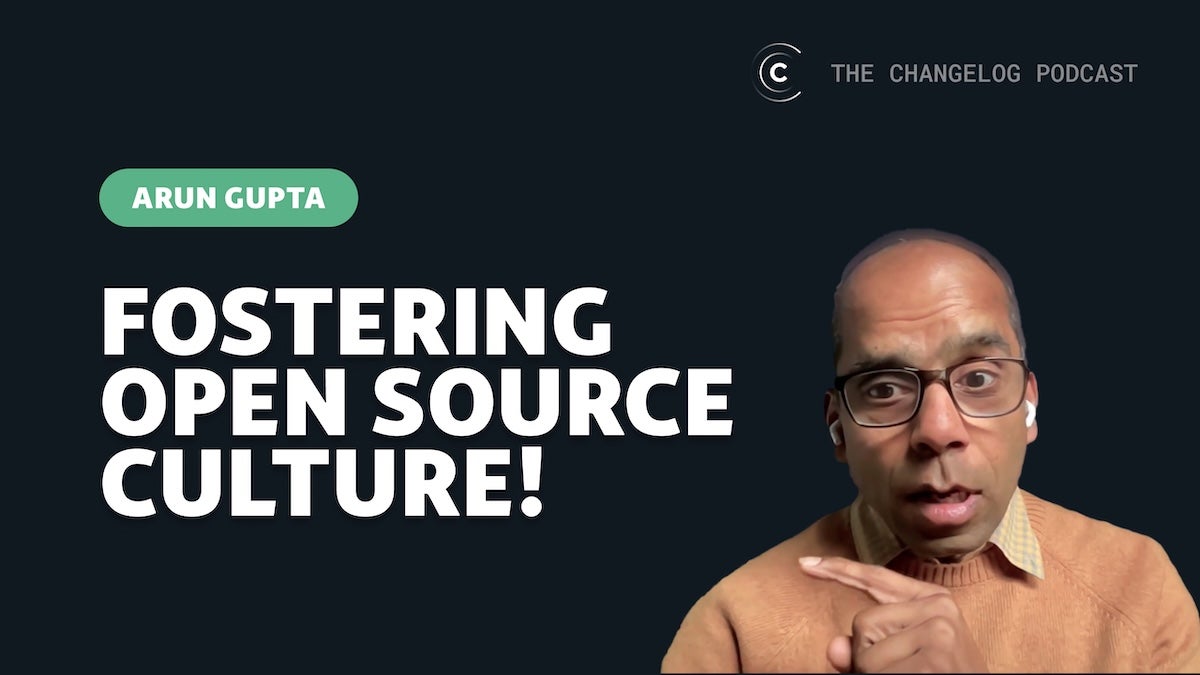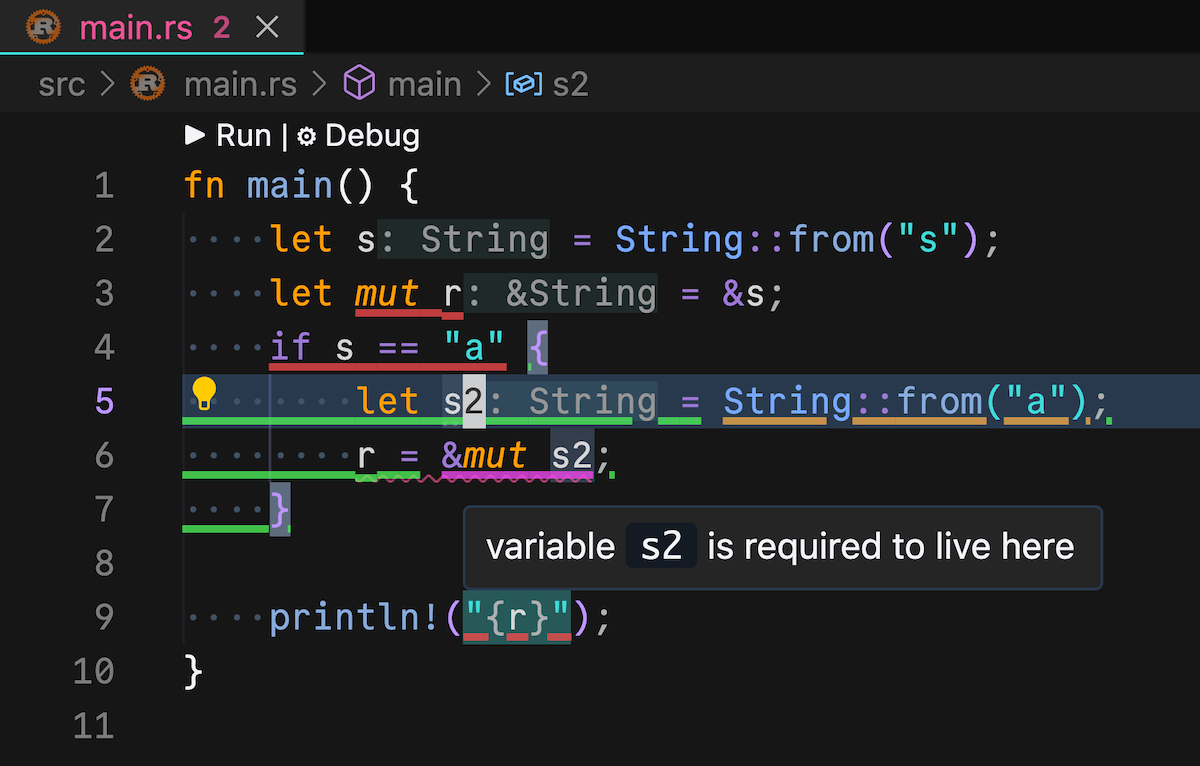Changelog News
Developer news worth your attention
Jerod here! 👋
If you listen to our shows, and you haven’t joined our (totally free) Zulip community… let’s fix that bug! It’s always more fun to discuss things you’ve heard with friends, and the commentary around our recent episodes has been SO GOOD. See for yourself…
Ok, let’s get into this week’s news.
🎧 Discovering discovery coding
Fire up a REPL, grab your favorite Stephen King novel, and hold on to the seat of your pants! Jimmy Miller returns to reveal why, at least for some of us, discovery coding is where it’s at. VIDEO
🙈 AI is stifling tech adoption
Declan Chidlow proposes that:
the advent and integration of AI models into the workflows of developers has stifled the adoption of new and potentially superior technologies due to training data cutoffs and system prompt influence.
I’ve been worried about this very thing ever since I first realized its possibility during our conversation with Elixir-creator, José Valim, last January (starting at chapter 13: “On long-term relevance”). Declan says:
I have noticed a bias towards specific technologies in multiple popular models and have noted anecdotally in conversation and online discussion people choosing technology based on how well AI tooling can assist with its usage or implementation.
While it has long been the case that developers have considered documentation and support availability when choosing software, AI’s influence dramatically amplifies this factor in decision-making, often in ways that aren’t immediately apparent and with undisclosed influence.
I’d hate to live in a world where the overwhelming majority of new software projects are written in Python and TypeScript just because LLMs are best at outputting Python and TypeScript…
(Not that there’s anything wrong with that (with Python 😏))
🌟 Leading successful product teams
Ariel Salminen shares 17 pieces of advice she’s learned about leading successful product teams after two decades in the web industry and 8+ years building design systems.
Running a design systems team has some minor differences compared to a more traditional product team setup, but there’s still enough overlap that all of these rules can be considered universal and applied to almost any product team out there.
Ariel’s entire list rings of wisdom, but the last three items were absolute bangers, IMO:
- Don’t be afraid to throw things away.
- Shipped is better than perfect.
- Be kind.
🏆 WikiTok is a testament to internet creation
Benj Edwards tells the story of WikiTok, an “endless Wikipedia feed to fight algorithm addiction”, created in the most internet-y way that a thing could be created:
The original idea for WikiTok originated from developer Tyler Angert on Monday evening when he tweeted, “insane project idea: all of wikipedia on a single, scrollable page.” Bloomberg Beta VC James Cham replied, “Even better, an infinitely scrolling Wikipedia page based on whatever you are interested in next?” and Angert coined “WikiTok” in a follow-up post.
Early the next morning, at 12:28 am, writer Grant Slatton quote-tweeted the WikiTok discussion, and that’s where Gemal came in. “I saw it from [Slatton’s] quote retweet,” he told Ars. “I immediately thought, ‘Wow I can build an MVP and this could take off.’”
Gemal started his project at 12:30 am, and with help from AI coding tools like Anthropic’s Claude and Cursor, he finished a prototype by 2 am and posted the results on X. Someone later announced WikiTok on ycombinator’s Hacker News, where it topped the site’s list of daily news items.
An idea jumps through five people and multiple LLMs to its creation (and world-wide distribution) in just 90 minutes. We live in trying times, for sure, but we also live in amazing times. /src
💰 Meet the people shaping the future of engineering
Thanks to Temporal for sponsoring Changelog News
Lauren Bennett:
The difference between a backend that hums and one that crumbles under pressure isn’t a lucky break: it’s engineering. The best solutions don’t come from you working in isolation, staring at logs, or fretting over your codebase. They come from people wrestling with real-world scaling problems, learning through failure, and designing for a future that isn’t yet written.
At Replay 2025, those engineers will take the stage to tell you how they’re pushing workflow orchestration, Durable Execution, and modernization efforts forward. Lauren outlines some of the talks that’ll be given, and they look great! Here’s a few that caught our attention:
- Building Systems That Can’t Afford to Fail
- Salesforce migrating a monolithic cloud with Temporal
- Resilience, Reliability, and Real-Time Response
You can read case studies, watch talks online, and even swap war stories on Slack, but nothing replaces being in the room with the minds who’ve already solved the problems you’re facing.
🌅 Sunsetting Create React App
Matt Carroll and Ricky Hanlon from the React team:
Today, we’re deprecating Create React App for new apps, and encouraging existing apps to migrate to a framework. We’re also providing docs for when a framework isn’t a good fit for your project, or you prefer to start by building a framework.
Their official stance going forward is you should start with a framework but I do appreciate that they have a page dedicated to how to build your own framework, if for no other reason than you can quickly grok all the things frameworks provide out of the box.
💫 Boring tech is mature, not old
Ruben Schade:
I’ve talked before about how I think NetBSD is “boring”, and that it’s among the highest forms of praise I can give tech as a sysadmin and architect. But I’ve never elaborated why that is.
On this week’s upcoming show with TailScale co-founder, David Crawshaw, Adam thought he might offend David by telling him that TailScale has become boring in his eyes. David took that as high praise, as would I!
Boring tech behaves in predictable ways. It’s a well trodden path others have evaluated, optimised, troubleshooted, and understood. Using tech that has been subjected to all those people hours of use means you’re less likely to run into edge cases, unexpected behaviour, or attributes and features that lack documentation or community knowledge.
Ruben isn’t saying there’s no room for innovation. His overarching point is that “it pays to make informed decisions, and that often times the understood, reliable, boring tech will get you there over something new, shiny or propped up with marketing spin.”
🎙️ Fostering open source culture
Arun Gupta is back, this time with his latest book in hand titled “Fostering Open Source Culture” to share his wisdom and experiences of fostering open source culture. VIDEO
👋 Resigning as Asahi Linux project lead
Hector Martin recently resigned from Linux kernel development. Now he’s also resigned from Asahi Linux itself:
When Apple released the M1, Linus Torvalds wished it could run Linux, but didn’t have much hope it would ever happen. We made it happen, and Linux 5.19 was released from an M2 MacBook Air running Asahi Linux. I had hoped his enthusiasm would translate to some support for our community and help with our upstreaming struggles. Sadly, that never came to pass. In November 2023 I sent him an invitation to discuss the challenges of kernel contributions and maintenance and see how we could help. He never replied…
When I started Asahi Linux, I let it take over most of my life. I gave up most of my hobbies (after all, this was my dream hobby), and spent significantly more than full time working on the project. It was fun back then, but it’s not fun any more. I have an M3 Pro in a box and I haven’t even turned it on yet. I dread doing the bring-up work. It doesn’t feel worth the trouble.
🦉 Visualize ownership and lifetimes in Rust
RustOwl visualizes ownership movement and lifetimes of variables. When you save Rust source code, it is analyzed, and the ownership and lifetimes of variables are visualized when you hover over a variable or function call.
They currently offer a VS Code extension, Neovim plugin & Emac package.
💰 TFW restraint is a good thing
Thanks to Test Double for sponsoring Changelog News
One day, your favorite app is clean, simple, and does exactly what you need. The next, it’s a bloated mess of settings, tabs, and AI-powered widgets you never asked for.
Turns out, most software doesn’t get worse because teams stop caring—it gets worse because they keep adding. More features. More complexity. More…everything.
The best products aren’t the ones that do the most. They’re the ones that know when to stop.
Let’s talk about the art of saying no.
🧑🎓 Undergrad upends 40-year-old CS principle
“You didn’t just come up with a cool hash table,” he remembers telling Krapivin. “You’ve actually completely wiped out a 40-year-old conjecture!”
Just when you thought hash table lookups couldn’t possibly get any faster…
📐 Don’t forget your (un)ordered list
- Move on to ESM-only
- The power of “I don’t know”
- Learn SQL by solving crimes
- WASM will replace containers
- All Kindles can now be jailbroken
- You are using Cursor AI incorrectly…
- uchū: the color palette for internet lovers
- Smuggling arbitrary data through an emoji
- “A calculator app? Anyone could make that”
- A GitHub-style markdown editor for Ruby on Rails
- The Deck: a turn by turn card game engine in Flutter
- View HTTP/HTTPS requests made by any Linux program
- We Replaced Our React Frontend with Go and WebAssembly
That’s the news for now, but we have some great episodes coming up this week:
- On Wednesday: David Crawshaw on how he programs with LLMs
- On Friday: Adam and I on changing our mind
Have a great week, forward this to a friend who might dig it & I’ll talk to you again real soon. 💚
–Jerod


